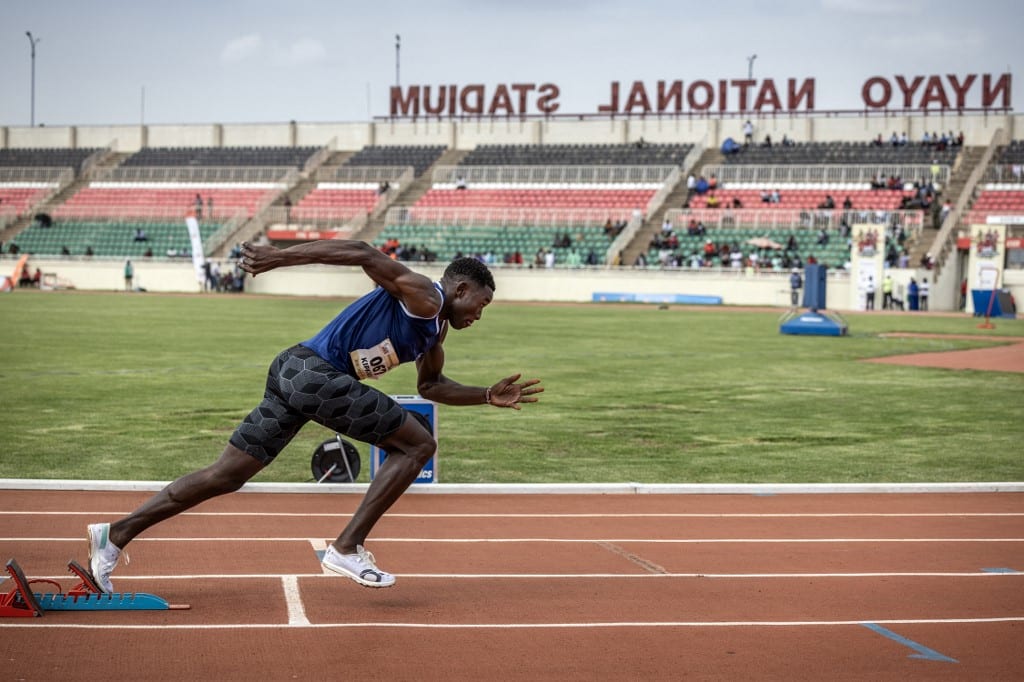
Betting on the Paris 2024 Summer Olympics can be an exciting challenge. With a wide range of betting opportunities, it’s easy to get overwhelmed. OddsTrader offers essential guidance on understanding odds and strategies to help sports fans place smarter bets on the Summer Games, ensuring a more informed betting experience.
Top Olympic Betting Sites
To boost your chances of success when wagering on the diverse array of sports featured in the Olympics, consider these expert betting sites:
- Dynamic Betting Variety
- User-Friendly Interface
- Daily Odds Boosts
- Multilingual Support
- Dynamic Betting Variety
- User-Friendly Interface
- Daily Odds Boosts
- Multilingual Support
- Lucrative Rewards Program
- Exciting Odds Boost Promotions
- User-friendly Interface
- Depth of sports coverage
Key Facts About the Paris 2024 Olympics
The 2024 Olympics in Paris will last from July 26 through August 11.
35 different venues will host the Olympic competition. 13 venues will be located in the Paris area, 12 in the Ile-de-France Area, and 10 throughout global France. Surfing, for example, will take place in Tahiti, which is located in French Polynesia.
How to Watch the Paris 2024 Olympics
You will have to consider that Paris is six hours ahead of Americans living on the East Coast, and events in France may start as early as 09:00 AM. So, prepare your sleep schedules accordingly, since you’ll need to wake up as early as 03:00 AM in order to follow the action live.
You will find live coverage of the 2024 Olympics on NBC daily. It will feature known broadcasters like Mike Tirico, joined by Rebecca Lowe, Craig Melvin, Damon Hack, and Ahmed Fareed. Still, keep in mind that certain events will also be broadcast on other channels, such as USA and CNBC.
And don’t forget about the broadcasting debut of legendary rapper Snoop Dogg joining NBCUniversal’s Lineup for the Olympic Games Paris 2024.
However, If you are more interested in the streams, Peacock will have Olympics coverage available.
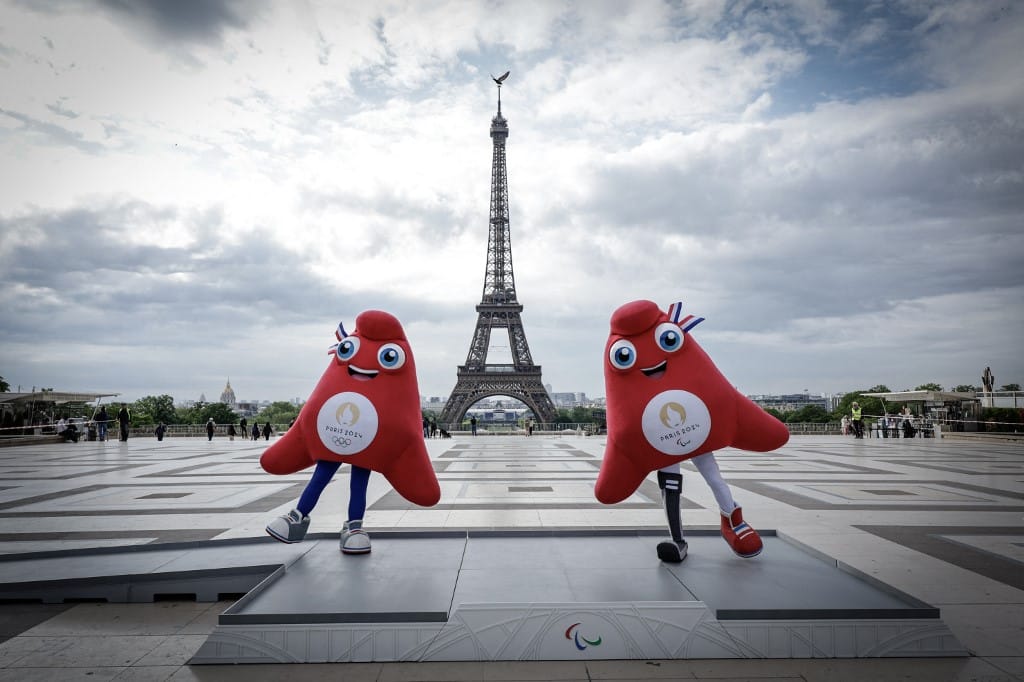
Paris 2024 Olympics Schedule
The Opening Ceremony will take place on July 26 and the Closing Ceremony on August 11.
Below you will find the key dates for the opening and closing ceremonies, as well as the schedule highlights by their respective sports.
Archery:
- Women’s team gold medal match: July 28
- Men’s team gold medal match: July 29
- Mixed team gold medal match: August 2
- Women’s individual gold medal match: August 3
- Men’s individual gold medal match: August 4
Artistic Gymnastics:
- Men’s all-around final: July 31
- Women’s all-around final: August 1
Artistic Swimming:
- August 5, 6, 7, 9, and 10
Athletics:
- Men’s 1500m final: August 6
- Women’s 1500m final: August 10
Badminton:
- Women’s doubles gold medal match: August 3
- Men’s doubles gold medal match: August 4
- Women’s singles gold medal match: August 5
- Men’s singles gold medal match: August 5
Basketball:
- Men’s gold medal game: August 10
- Women’s gold medal game: August 11
Basketball (3×3):
- Men’s gold medal match: August 5
- Women’s gold medal match: August 5
Beach Volleyball:
- Women’s gold medal match: August 9
- Men’s gold medal match: August 10
Boxing:
- Men’s and women’s finals: August 6 through 10 for all weight classes
Breaking:
- Women’s gold medal battle: August 9
- Men’s gold medal battle: August 10
Canoe Slalom:
- Women’s kayak single final: July 28
- Women’s canoe single final: July 31
- Women’s cross finals: August 5
- Men’s kayak single final: August 1
- Men’s canoe single final: July 29
- Men’s kayak cross final: August 5
Canoe Sprint:
- Finals for men and women: August 8-10
Cycling BMX Freestyle:
- Finals: July 31
Cycling BMX Racing:
- Finals: August 2
Cycling Mountain Bike:
- Women’s cross-country: July 28
- Men’s cross-country: July 28
Cycling Road:
- Men’s road race: August 3
- Women’s road race: August 4
Cycling Track:
- Finals for men and women: August 5, 6, 7, 9, 10, and 11
Diving:
- Men’s and women’s finals: July 29, July 29, July 31, August 2, August 6, August 8, August 9, and August 10
Equestrian:
- Finals: July 29, August 2, and August 6
Fencing:
- Women’s individual foil final: July 28
- Men’s individual foil final: July 29
Golf:
- Men conclude: August 4
- Women conclude: August 10
Handball:
- Women’s gold medal match: August 10
- Men’s gold medal match: August 11
Hockey:
- Men’s gold medal match: August 8
- Women’s gold medal match: August 9
Judo:
- Finals: July 27 through August 3
Marathon Swimming:
- Women’s competition: August 8
- Men’s competition: August 9
Modern Pentathlon:
- Men’s finals: August 10
- Women’s finals: August 11
Rhythmic Gymnastics:
- Individual all-around final: August 9
- Group all-around final: August 10
Rowing:
- Men’s and women’s finals: July 31 through August 3
Rugby Sevens:
- Men’s gold medal match: July 27
- Women’s gold medal match: July 30
Sailing:
- Men’s and women’s finals: August 2 and 8
Shooting:
- Men’s and women’s finals: July 28 through August 5
Skateboarding:
- Men’s street final: July 27
- Women’s street final: July 28
- Men’s park final: August 7
- Women’s park final: August 6
Soccer:
- Men’s gold medal match: August 9
- Women’s gold medal match: August 10
Sport Climbing:
- Women’s finals: August 7 and 10
- Men’s finals: August 8 and 9
Surfing:
- Men’s and women’s gold medal matches: July 31
Swimming:
- Finals: July 27 through August 4
Table Tennis:
- Women’s singles gold medal match: August 3
- Men’s singles gold medal match: August 4
Taekwondo:
- Men’s and women’s gold medal matches: August 7 through 10
Tennis:
- Women’s singles gold medal match: August 3
- Men’s singles gold medal match: August 4
Trampoline:
- Men’s and women’s finals: August 2
Triathlon:
- Men’s individual competition: July 30
- Women’s individual competition: August 1
Volleyball:
- Men’s gold medal match: August 10
- Women’s gold medal match: August 11
Water Polo:
- Women’s gold medal match: August 10
- Men’s gold medal match: August 11
Weightlifting:
- Men and women compete: August 7 through 11
Wrestling:
- Finals: August 5 through 11
This Year’s New Sports
When people think of the Olympics, they think of a competition that, having been around for literally millennia, is steeped in ceremony and tradition. However, only four sports have been a part of each Summer Olympics since 1896. These four are athletics, swimming, fencing, and artistic gymnastics.
The Olympics are constantly changing in terms of what sports they have athletes compete in. These changes are ongoing. You may recall the changes that transpired for the previous Summer Olympics, the COVID-era rendition in Tokyo. Back then, four new sports were introduced, including:
- 3 v. 3 basketball
- Skateboarding
- Surfing
- Sport climbing
In the upcoming Olympics, one new sport will be breaking, more commonly known as breakdancing. In this sport, competitors will “battle” each other and be scored by judges.
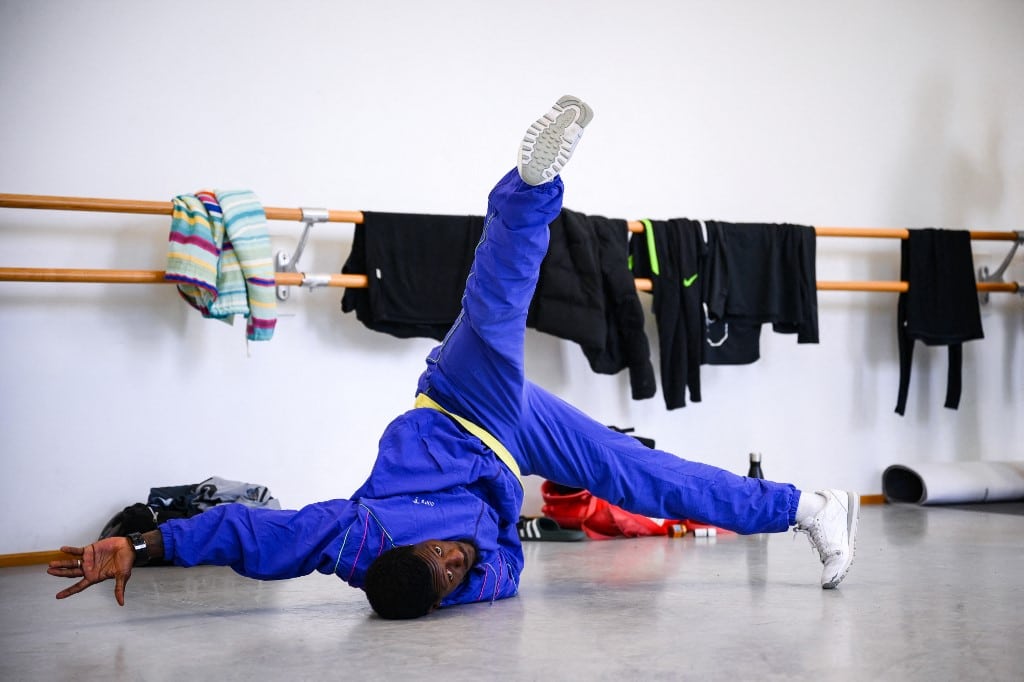
New Sports and Format Changes
Breaking
Breaking, or breakdancing, will be an event in which competitors are scored by judges. The judges will use six criteria with which to assess competitors:
- Creativity
- Performativity
- Musicality
- Variety
- Personality
- Technique
Judges will accord more importance to certain criteria than to others. Specifically, performativity and creativity will be weighted most heavily. They combine for 60 percent of the score. The gold medalist in breaking will be the competitor who has earned the greatest point total.
Canoeing
Canoeing will be played out differently in these Olympics. A new event is being added, called “Kayak Cross.” When you think of canoeing competitions, you think of athletes being timed, one after another, as they compete. With kayak cross, we get canoers competing simultaneously with each other. They will, in this way, be racing against each other.
Sport Climbing
Sport climbing, which was a new add for the previous Summer Olympics, will have a new format. Instead of one combined event, we will get two events. One of the two events will still be combined – it will combine boulder and lead – and the other will be speed climbing.
Athletics
For athletics, specifically for track, the qualification process will undergo a formatting change. Previously, track athletes qualified for the finals of a given event solely in heats. We will still have heats. But previously, they had to finish in a qualifying position. A few of the next fastest competitors would also advance to the finals. Now, on this edition, the athletes who don’t finish in a qualifying position in a heat will get another chance. This other chance is called a “repechage round.” In this second chance, they have to finish in a qualifying position. All track athletes racing in the 200m to 1500m events will experience this altered format.
Complete Guide to Olympic Sports
| Sport | Description |
|---|---|
| Archery: | Competitors aim to hit a target with arrows, rewarded for precision near the center. |
| Artistic Gymnastics: | Competitors perform using various apparatus, judged on difficulty and execution. |
| Artistic Swimming: | Swimmers perform choreographed routines in water, judged on artistic merit. |
| Athletics: | Known as track and field; includes running, sprinting, hurdling, jumping, and throwing events. |
| Badminton: | Similar to tennis but with a shuttlecock, played over a net. |
| Basketball: | Traditional 5v5 and 3×3 formats, with the latter using half the court. |
| Beach Volleyball: | Two-person teams compete in sets played to 21, with a tiebreaker to 15 if needed. |
| Boxing: | Amateur event with men’s matches having three three-minute rounds and women’s having four two-minute rounds. |
| Breaking: | Also known as breakdancing; competitors battle and are judged. |
| Canoe Slalom: | Canoers and kayakers navigate obstacle courses; kayak cross allows contact. |
| Canoe Sprint: | Boat races over set distances. |
| Cycling BMX Freestyle: | Riders perform tricks judged on creativity and execution. |
| Cycling BMX Racing: | Riders race against each other. |
| Cycling Mountain Bike: | Riders race on rugged terrain. |
| Cycling Road: | Road races with women covering 120 km and men 200 km. |
| Cycling Track: | Races on a 250m track, testing speed and endurance. |
| Diving: | Individual and synchronized events judged on dive execution. |
| Equestrian: | Includes dressage, jumping, and combined events featuring jumping, dressage, and cross-country. |
| Fencing: | Competitors try to touch opponents with weapons in three three-minute rounds. |
| Football (Soccer): | Men’s teams are younger than usual. |
| Golf: | Four rounds of play. |
| Handball: | Teams score goals using hands, with more physical contact than soccer. |
| Hockey: | Field hockey with four 15-minute periods. |
| Judo: | Competitors aim to throw, pin, or force submission. |
| Marathon Swimming: | A 10-kilometer endurance race. |
| Modern Pentathlon: | Includes fencing, swimming, horse riding, and shooting. |
| Rhythmic Gymnastics: | Women perform artistic routines set to music, judged by judges. |
| Rowing: | Boat races where rowers move backward; varies by team size and oars. |
| Rugby Sevens: | Rugby with fewer players on a traditional field, emphasizing speed. |
| Sailing: | Boat races using wind to navigate. |
| Shooting: | Competitors use pistols, rifles, and shotguns, shooting at targets or flying objects. |
| Skateboarding: | Competitors perform tricks in three 45-second rounds, judged on execution. |
| Sport Climbing: | Includes boulder, lead, and speed climbing on various wall sizes. |
| Surfing: | Athletes perform judged tricks on waves. |
| Swimming: | Various individual and relay events in water, similar to track events. |
| Table Tennis: | Singles and doubles matches, games played to 11 points. |
| Taekwondo: | Competitors kick and punch, judged on execution and difficulty of moves. |
| Tennis: | Singles and doubles matches; singles play best of three sets, doubles have a tiebreaker. |
| Trampoline: | Competitors perform judged maneuvers on a trampoline. |
| Triathlon: | Includes a 1500m swim, 40 km cycle, and 10 km run. |
| Volleyball: | Six-player teams play best of five sets, each set to 25 points. |
| Water Polo: | Similar to handball but played in water. |
| Weightlifting: | Includes snatch and clean and jerk lifts. |
| Wrestling: | Greco-Roman (above the waist) and freestyle (full body) varieties, with pins or takedowns determining winners. |
Fast Facts on Olympic Basketball
For both men and women, there are twelve teams competing.
There will be three groups, each consisting of four teams. Each team in each group will play each other once. The teams that earn the most points – as measured by wins or losses – will advance past the group phase. The two-best three-place teams will also advance. This group phase goes from July 24 through August 04.
For the teams that advance past the group stage, the knockout stage (known as the single-elimination format) follows from August 6 through August 11.
Past Performances
- In the previous Summer Olympics, the US men finished second in their group because they lost a game to France. However, they got their revenge on the French by beating them in the gold medal match.
- The women, unlike the men, did not lose a single game. They went undefeated. Besides, they dominated on an individual level too. Griner, for example, broke a Finals record by amassing 30 points.
The overall image shows that the Americans have owned Olympic basketball: the men are winners of the last four gold medals, the women of the last seven.
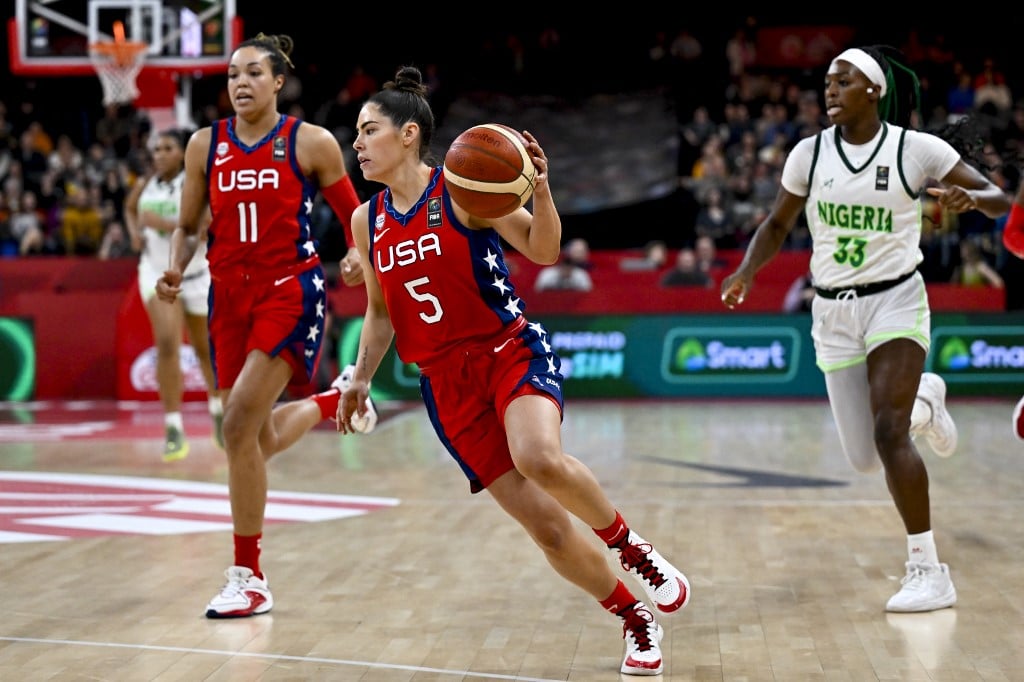
2024 Olympic Basketball: Teams, Players and Odds
On this year’s edition, the men’s basketball roster for the USA goes by the names of Bam Adebayo, Devin Booker, Steph Curry, Anthony Davis, Kevin Durant, Anthony Edwards, Joel Embiid, Tyrese Haliburton, Jrue Holiday, LeBron James, Kawhi Leonard, Jayson Tatum.
- This team is favored by -400 at top-rated sportsbooks to win the gold medal.
Meanwhile, the women’s basketball roster hasn’t left much talent hanging by taking the likes of Napheesa Collier, Kahleah Copper, Chelsea Gray, Brittney Griner, Sabrina Ionescu, Jewell Lloyd, Kelsey Plum, Breanna Stewart, Diana Taurasi, Alyssa Thomas, A’ja Wilson, Jackie Young
- This team is favored by -1400 to win the gold medal.
Below, you will find some of the main contenders in the Olympic basketball tournament and its respective odds:
Men’s Basketball Gold Medal Winner Odds
| Team | Current Odds |
|---|---|
| USA | -450 |
| Canada | +800 |
| Serbia | +900 |
| France | +1400 |
| Germany | +2500 |
| Spain | +2500 |
| Australia | +3300 |
| Slovenia | +5000 |
Women’s Basketball Gold Medal Winner Odds
| Team | Odds |
|---|---|
| USA | -1200 |
| Belgium | +2000 |
| China | +2000 |
| Australia | +2200 |
| France | +2500 |
| Japan | +2500 |
| Spain | +2500 |
| Canada | +2800 |
| Serbia | +6600 |
Teams to Watch in 2024
Canada, at +900, is the second-most favored team after the United States. This group will feature various recognizable names, the most prominent ones being guards Shai Gilgeous-Alexander and Jamal Murray.
While those two players can score in droves, Canada also boasts several strong defenders, including Dillon Brooks. Brooks regularly guards All-Stars and does so with success, holding them with relatively impressive consistency to low field goal percentages and low point totals.
Just behind Canada, Serbia and France are the third-most favored teams, both at +1000. Serbia will boast Nikola Jokic, who will perhaps be the best player on the court. France will have four-time Defensive Player of the Year Rudy Gobert and rising big-time scorer Victor Wembanyana.
NBA Stars Shine at the 2024 Olympics
After the Americans were decimated by Germany in the interior last year, Philadelphia 76ers center Joel Embiid appears as the most important player. His importance is visible whenever he’s on the court: opposing players are scared to enter the paint when he’s protecting the rim. On offense, he is a menace with his physicality combined with his surprising three-point shooting efficiency.
Among the lower-profile players, keep an eye on Josh Giddey, shooting guard for the Thunder. It’s hard to appreciate Giddey from watching the Thunder because the Thunder don’t really use him well. As evidenced when he led the Australian League (NBL) in assists, he is an excellent passer and decision-maker. While he won’t light up the scoreboard with three-pointers, he’ll get his teammates going.
However, keep in mind that this kind of star power is also distributed among other countries like Australia, where they got players like Jock Landale, Patty Mills, Josh Giddey, Dyson Daniels, Josh Green, Joe Ingles, and Dante Exum. What about Germany? They will display the power of Dennis Schroder.
Don’t forget that Luka Doncic confirmed his assistance for Slovenia. For Greece, we will see Giannis, while for Lithuania, we will see Domantas Sabonis. Other countries like Latvia can presume the power of Kristaps Porzingis; or even South Sudan, where they got someone like Bol Bol.
Still, there could be more NBA players, such as Rui Hachimura for Japan and Donte DiVincenzo for Italy.
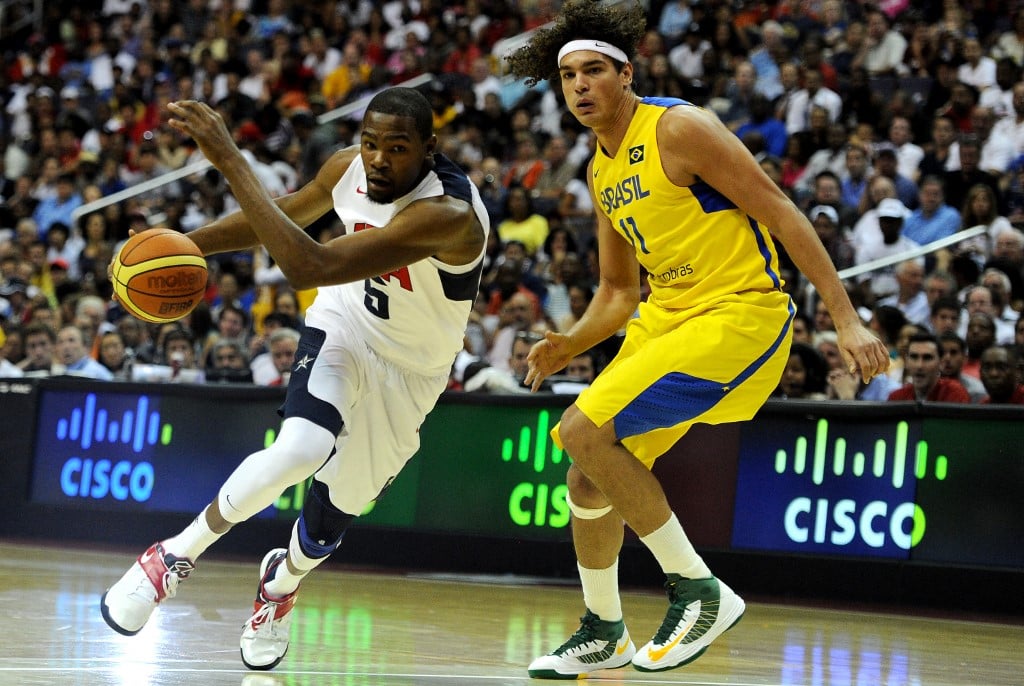
Betting Odds for 2024 Olympic Basketball
The USA men are favored at -400 for good reason: this team has tremendous talent. However, -400 is simply too steep. The team could still show some significant weaknesses, one being its rim protection if Joel Embiid doesn’t overcome the injury problems that plagued him during the NBA playoffs. The Germans, last Summer, really hurt the Americans in the interior when they upset them. Other teams could do the same.
Serbia is a clear example of one such team. We saw in the playoffs how Jokic was able to alter the outcome of games by himself. Canada, on the other hand, strikes me as very dangerous with its array of talented NBA players.
I think that the USA will win but not with the degree of confidence implied by oddsmakers. Given the odds – and the potential for a significant payout relative to one’s wager size – it is worth investing a little in Canada and Serbia.
How to Place Bets on the 2024 Olympics
Betting on the Olympics is an exciting way to engage with the Games. Follow these steps to get started with Olympic betting:
- Choose a Reputable Olympics Betting Site: Start by selecting a trustworthy online sports betting site. Look for those with good reviews, competitive odds and a user-friendly interface. Ensure the sportsbook is licensed and offers a variety of Olympic betting options.
- Create a Sports Betting Account: Once you’ve chosen a sportsbook, sign up by providing your personal details, including name, email and date of birth. You’ll also need to create a username and password. Some sportsbooks may require verification through email or phone.
- Make Your Initial Deposit: After creating your account, deposit funds. Most sportsbooks offer several deposit methods, such as credit cards (American Express, Visa, Mastercard), debit cards, e-wallets (PayPal), cryptocurrencies (Bitcoin, Bitcoin Cash, Ethereum) and bank wire transfers. Choose your preferred method, enter the necessary details and decide how much you want to deposit.
- Browse the Sports Betting Markets: With your account funded, explore the available Olympic events and betting markets. Sportsbooks offer a wide range of options, including moneylines, point spreads, over/under bets, prop bets and futures.
- Place Your First Bets: Select the event you want to bet on and choose your bet type. Enter your stake and confirm your bet. Review your bet slip to ensure everything is correct before finalizing.
- Withdraw Your Winnings: If your bets are successful, you can withdraw your winnings. Visit the sportsbook’s withdrawal section, choose your preferred withdrawal method and follow the instructions to transfer your funds.
By following this step-by-step guide, you can start placing bets on the Olympics with confidence. Enjoy the thrill of betting on the world’s biggest sporting event and make the most of the exciting betting opportunities it offers.
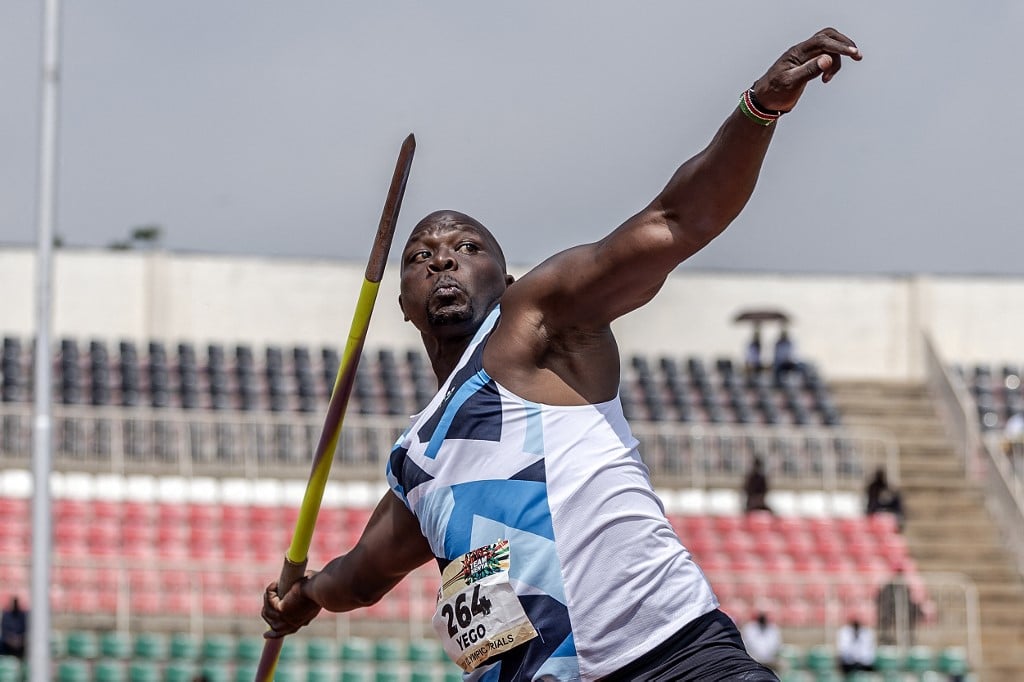
How to Read Olympic Betting Lines And Odds
-
Moneylines
You are betting on a team to win. For example, the moneyline for Team USA against Canada might be -350.
-
Point Spreads
You are betting on a team to win by a certain amount of points or to, at minimum, stay within a certain number. For example, Serbia might be a two-point underdog (+2) to France, which means that your wager will be scored by adding two points to Serbia’s final point total. If Serbia wins or loses by one point, then Serbia’s backers will win.
-
Totals
You are betting on the combined point total for both teams. For example, let’s say that the over/under for a given game is 205 points. If you play the “over,” you are betting that both teams will score a combined total that exceeds 205 points.
-
Futures
You can bet on the number of medals that a country will earn. You can also bet on the outcome of a specific event, as in which team will win “gold” in a given sport. Below, you will find the current odds on which country will win the most gold medals.
| Country | Current Odds |
|---|---|
| USA | -600 |
| China | +350 |
| France | +6600 |
| Japan | +8000 |
| Great Britain | +8000 |
| Netherlands | +20000 |
| Australia | +22500 |
| Italy | +35000 |
Other Popular Types of Olympic Bets
Various betting options are available for the Olympics, each offering unique ways to engage with the games. Here are some common types of bets that you can find at your preferred online sportsbook:
- Over/Under Betting: These bets involve wagering on the total number of points, goals or other outcomes. You bet on whether the actual number will be over or under the sportsbook’s set total.
- Prop Betting: Also known as proposition bets, these unique wagers focus on specific outcomes within an individual event. Examples include betting on the overall Olympic medal count that a country will win, if a world record will be broken, whether the Olympic Flame will be extinguished early or other specific event occurrences. With player props, you can also bet on individual athlete achievements.
- Futures Betting: Long-term wagers placed on outcomes to be determined by the end of the Olympics. This bet type often offers attractive betting odds and can be exciting to follow.
Country to Win Most Gold Medals: With this type of bet, bettors predict which country will get the most gold medal wins. This bet requires analyzing the strengths and performance of each country’s athletes. - Total Medals by Country: Wager on the total number of medals (gold medals, silver medals and bronze medals) a country will win. This bet involves extensive research into each country’s medal prospects.
- Head-to-Head Country Bets: These bets compare two countries and you wager on which will win more medals. It’s a comparative bet that adds an extra layer of competition.
- Parlay Betting: Combine multiple individual bets into one wager. All individual bets (or “legs”) must win for the parlay to be successful. While riskier, parlays offer higher potential payouts.
- Live Betting: Allows you to place bets with your chosen online sportsbook in real time as events unfold. This dynamic betting style lets you react to the action as it happens, providing immediate betting opportunities.
Understanding these types of bets can help you tailor your strategies and enhance your Olympic betting experience. Whether you prefer straightforward bets like moneyline bets or more complex bets like parlays and futures bets, there’s a betting option for everyone.
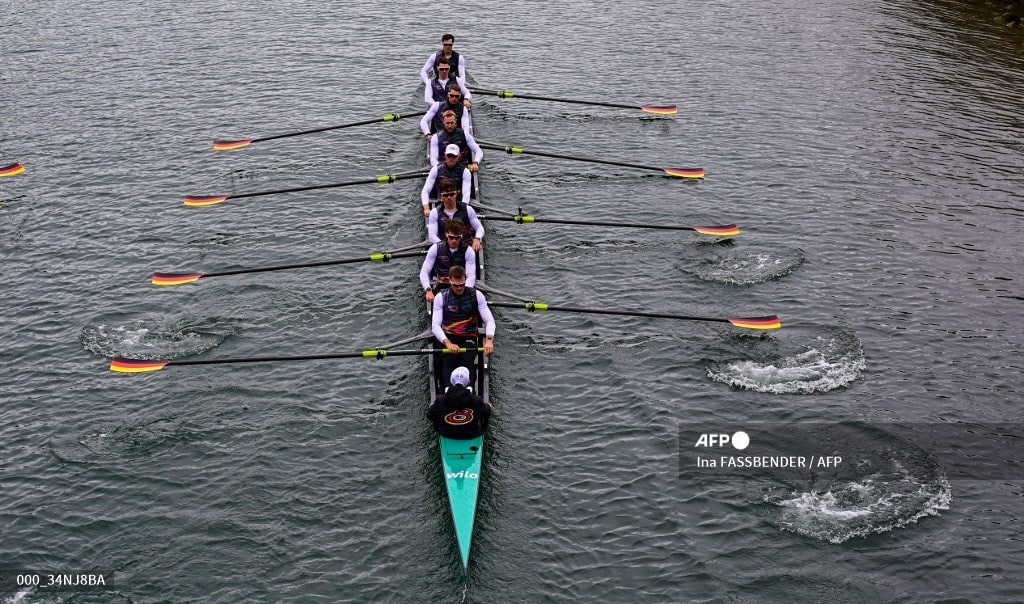
Tips & Betting Strategies for Olympic Events
To maximize your chances of success when betting on the wide range of sports featured throughout the Olympics, consider these expert tips and betting strategies:
Manage Your Bankroll: Set a betting budget and stick to it, as responsible gambling is one of the best pieces of betting advice you can get. Never bet more than you can afford to lose. These responsible betting practices will help you to enjoy betting without financial stress.
Stay Informed: Keep up with the latest news on athletes, including their form, injuries and historical performances. Follow reliable sports news sources to stay updated on any changes that could impact outcomes.
Monitor Betting Lines: Betting lines can fluctuate. Track these changes across multiple Olympic betting sites to find the best Olympic betting odds and identify betting trends. This can help you make more informed bets and maximize your potential returns.
Consider Weather Conditions: Weather can significantly affect outdoor events. Keep an eye on forecasts and understand how different conditions might impact athletes’ performances. This can give you an edge in making smarter bets.
Start Small: If you’re new to Olympic betting, start with simple bets and small wagers. This allows you to learn without risking too much. As you become more confident and knowledgeable, you can gradually increase your stakes.
Diversify Your Bets: Don’t put all your money on a single bet. Spread your bets across different events and types of wagers. This strategy reduces risk and increases your chances of winning.
Analyze Form & Statistics: Look at athletes’ and teams’ recent performances, head-to-head records and statistics. This information can provide valuable insights and help you make better betting decisions.
Use Multiple Olympic Betting Sites: Different Olympic betting sites offer different odds and promotions. Use multiple online sports betting sites to compare the available betting odds and take advantage of any bonuses and promos, ensuring you get the best value for your bets.
Avoid Emotional Betting: Avoid letting personal biases influence your betting decisions. Focus on the facts and statistics rather than your favorite athletes or teams.
By incorporating these strategies into your betting approach, you can enhance your Olympic betting experience and increase your chances of making successful bets. Discipline, knowledge and careful planning are key to making smart wagers and potentially achieving profitable results during the Olympic Games.
Olympics Betting FAQs
Can You Legally Bet on the Olympics?
Yes, it is legal to bet on the Olympics with approved and regulated sportsbooks in states where online sports betting has been legalized. Most states that permit sports betting offer various Olympic wagers, though the availability may differ across different sportsbooks.
What New Sports Will Be in the 2024 Olympics?
The new sports for the 2024 Olympics include breaking, skateboarding, surfing, and sport climbing. These sports are set to make their debut in the 2024 Olympics, adding diversity and excitement to the competition lineup.
Can an Olympic Host Country Add a Sport?
The host country cannot unilaterally add a sport to the Olympic program. The event program for the Olympic Games is defined by the IOC Executive Board based on recommendations from the Olympic Programme Commission, in cooperation with the International Federations and the Organizing Committee of the Olympic Games.
Can You Bet on the Olympics on Fanduel?
Yes, you can bet on the Olympics on FanDuel Sportsbook. FanDuel offers valuable odds, fast payout processing, and various promotions for betting on a wide range of Olympic sports, making it a suitable platform for Olympic betting.
Can You Bet on the Olympics on DraftKings?
Yes, you can bet on the Olympics on DraftKings Sportsbook. DraftKings offers valuable odds, futures markets, and a wide variety of betting options, providing a comprehensive platform for Olympic betting. The platform also emphasizes responsible gaming.
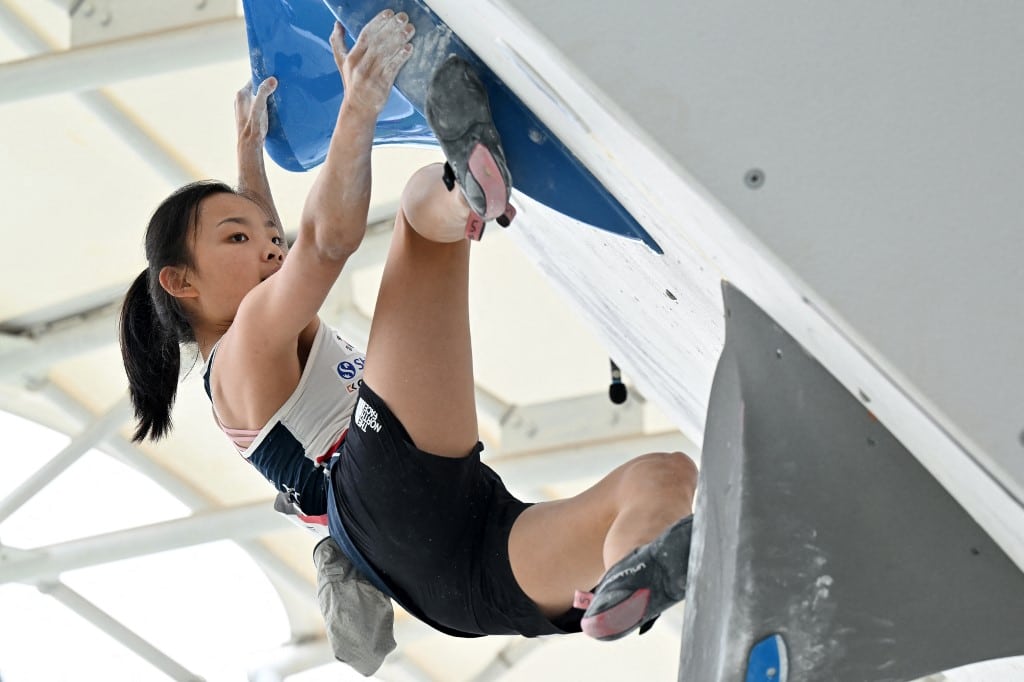
Adek Berry / AFP
*21+ Seek help with a gambling addiction at 1-800-Gambler
*The line and/or odds referenced in this article might have changed since the content was published. For the latest information on line movements, visit OddsTrader’s free betting odds tool.


